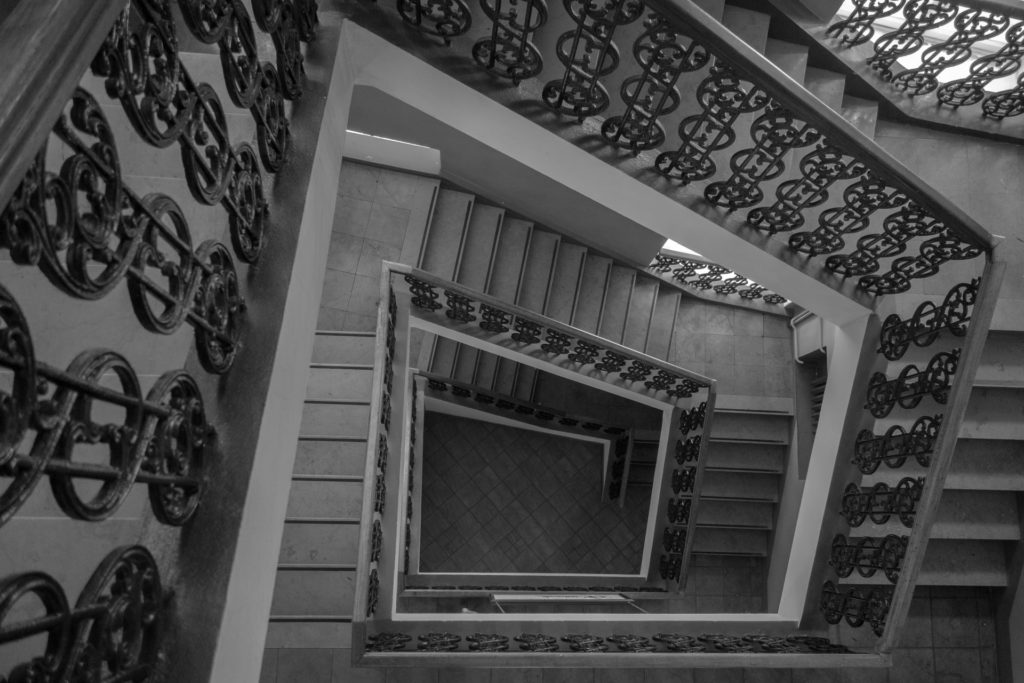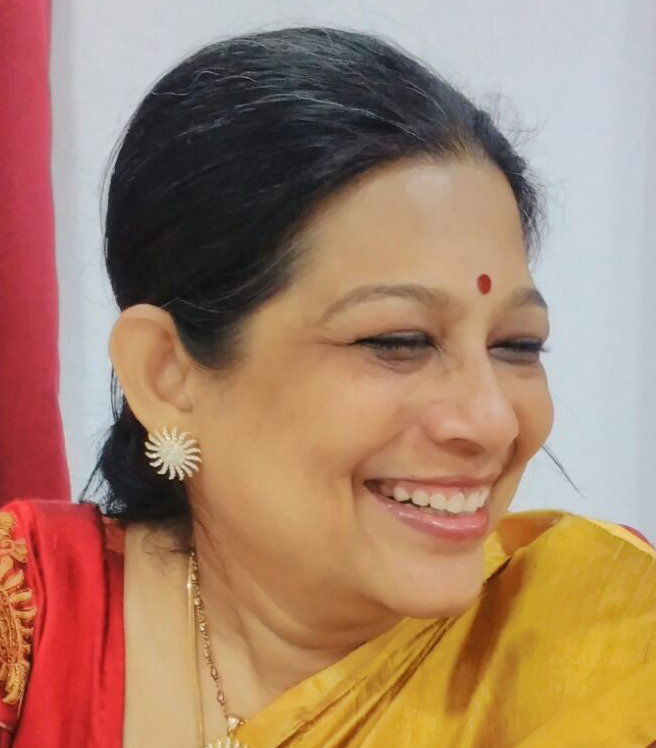Chandrika R Krishnan
Guest Blogger
There were two brothers in a small village in the Eastern Cape. The twin brothers grew up knowing nothing else but poverty. Their father was an alcoholic and their mother a domestic worker. They grew up with very little.
On their way home one day, their parents were involved in a bus accident and died instantly. The brothers’ condition became even worse. At age 17 they separated. Years and years later a family member decided to find them for a family reunion.
One of the brothers was a wealthy engineer owning a construction company. He had a wife and three beautiful kids. The other was an alcoholic with no sense of direction for his life.
The family member asked the engineer, “How did your life turn out like this?”
“What did you expect with a childhood like mine?” he answered.
She moved on to the other brother with the same question.
“What did you expect with a childhood like mine?” was his answer.
This tells us that, “men are not disturbed by the things that happened but by their perception of the things that happened”.
What is Perception?
The dictionary meaning of perception is: Sensory, that is the ability to see, hear, feel or become aware of something through the senses.
It is also the way in which something is regarded, understood, interpreted or perceived.
A teacher teaching Maths to six-year-old Brian asked him, “If I give you one apple and one apple and one apple, how many apples will you have?”
With a few seconds Brian replied confidently, “Four!”
The dismayed teacher was expecting an effortless correct answer. She was disappointed. “May be the child did not listen properly,” she thought.
She repeated, “Brian, listen carefully. If I give you one apple and one apple and one apple, how many apples will you have?”
Brian had seen the disappointment on his teacher’s face.
He calculated again on his fingers.
This time hesitatingly he replied, “Four…”
The teacher realizing that Brian loves strawberries tried again.
She asked, “If I give you one strawberry and one strawberry and one strawberry, then how many will Brian have?”
With a hesitating smile young Brian enquired, “Three?”
The teacher now had a victorious smile. Her approach had succeeded.
She wanted to congratulate herself. Yet, being a diligent teacher, she stopped herself and asked again, “Now if I give you one apple and one apple and one more apple how many will you have?”
Promptly Brian answered, “Four!”
The teacher was aghast.
“How Brian, How?” she demanded in a little stern and irritated voice.
In a voice that was low and hesitating young Brian replied, “Because I already have one apple in my bag.”
Techniques

Young Brian had used the top-down technique in interpreting the incoming information. He based it on prior knowledge (that he had an apple in his bag!). This process depends on prior knowledge, experiences and expectations. If we had our house robbed, we go through life viewing people as dishonest. A workaholic boss appreciates an employee who doesn’t mind sitting after office hours for he views him as someone who is devoted to the company. It could be as simple as not learning the art of time management.
The other technique that we follow is bottom-up. The bottom-up process involves information traveling ‘up’ from the stimuli, via the senses, to the brain which then interprets it, relatively passively. Bottom-up processing is also known as data-driven processing, because the processing of information begins with environmental stimuli, and perceptions are built from sensory input.
When someone gives us an answer that is different from what we are expecting, it is not necessarily they are wrong. Their truth could be vastly different from ours!
There are lots of factors that could impact our perception. Proffitt and Baer believe that our energy and abilities impact our perspective as also our hunger. “If we are tired or physically unfit, the distance appears further. If we are carrying heavy backpack the hills look steeper. In other words, you do not see the hill as it is but rather as it is seen by you!”
Looking back, our parent’s insistence of eating our breakfast before we began the day might have actually helped us not view our poor marks as our teacher’s penchant for partiality!
With the onslaught of social media and information overload, we are actually not seeing the hill as is. As 2021 drew to an end, there were many who posted the number of books they read, or number of movies they watched or the places they visited. One person posted that reading books need not become a “blood sport” and such list was only adding to the stress. On the other hand, there were many who felt it was extremely “motivating.”
The issue becomes when the same comparison turns towards more material pursuits.
Our perceptions color our view to such an extent that we start equating physical attributes to their character. A few years prior, there was quite a furor over an advertisement of a ‘skin lightening product’ which depicted that a woman who turns fairer succeeds in an interview rather than a darker woman. This thought process is so ingrained in us that we tighten our purse strings when we see an unkempt and poor person next to us on a public transport but are more than willing to sit next to a dignified person believing him to be more honest. Painting all police personnel as innately corrupt or all politicians being chameleons; we go through life painting it black or white.
Of late, the desire to be better than Joneses is playing havoc in our lives. Desire is considered to be an intellectual appetite for things that we perceive to be good. So, when instagram accounts show influencers having a time of their lives or visiting exotic places, we presume that their life is good. Unfortunately, there might be an angle that we have never taken into account at all. We also have a belief that anything that comes cheap or free must be of substandard quality. Recently, a yoga instructor who wanted to teach yoga for free was forced to take fees for she realized that people didn’t turn up because it was free! They did not value her time or effort.
I came across a lovely real-life story of how we forget to notice the beauty of our lives. The story goes that on a cold January morning, in 2007, a man played six Bach pieces on his violin for about 45 minutes at a Metro station in Washington DC. Approximately, 2000 people went through the station, most of them on their way to work. None of them barring a few children showed any interest in the man, his violin or his music. He collected a total of $32 and there was no applause. Two days later, the musician played the same music on his $3.5 million violin at a theater in Boston and the tickets were sold at $100 each.
He was Joshua Bell and he was a part of a social experiment about perception, taste and people’s priorities.

This experiment raised several questions: In a common-place environment, at an inappropriate hour, do we perceive beauty? Taking this a little further, I would say that we rarely perceive beauty or usefulness if it is not lovelier, bigger, better, meaner and costlier.
Our perceptions encompass a whole lot of aspects. If we meet someone who thinks differently, we try and impose our perspectives on others and then wonder what went wrong. All of us view others and see them with the lens that we wear. It could be our own mindset or the generalizations that we grew up with.
Our world view depends on nature, nurture, neighbors, environment, belief system, social media exposure and loads others. And hence, our right does not mean someone’s wrong! It just means that the life wasn’t seen from our side.
To conclude, it would be wise to remember Zen Master Thich Nhat Hanh sayings.
“A wrong perception can cause of a lot of suffering. Practice meditation to look deeply into your perceptions.”
[Banner image by Sharon McCutcheon on Unsplash]

Chandrika R Krishnan, a Bengaluru-based writer and educationist who likes all things beginning with a ‘T’ – talking, teaching, tales, and tea.
A people person and a born observer, she weaves fiction and dispenses ‘gyaan’ alike to the unsuspecting audience. Her 350 + articles and stories (both in print and online media) are mostly eclectic and experiential. She is a published author, and her collection of flash fiction was published recently titled- vignettes- a slice of life. Her stories feature in many anthologies.
You can read her articles @ https://chandrikarkrishnan.com/

About A New You:
We all deserve to have everything in our life exactly the way we want it.The first step begins with believing that every moment is bringing an opportunity to be a new you. As a founder, I provide tools to elevate all dimensions of your life and I teach you the art of writing to reach to your true potential.
Vandana Sehgal | Founder – A New You
